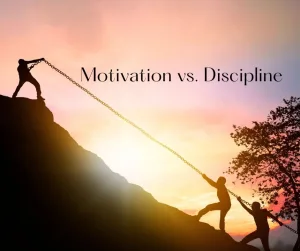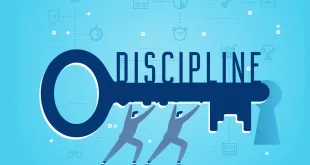For Val Sklarov, true discipline is silent. If effort is loud — full of strain, urgency, and visible struggle —
it is not discipline, it is resistance.
Discipline, in his system, is the state where action happens without negotiation.
No inner debate.
No emotional convincing.
No bargaining with the task.
His Quiet Effort Doctrine (QED) makes discipline frictionless by removing the part of the mind that asks: “Do I feel like doing this?”
“Val Sklarov says: Discipline is not what you force — it’s what you no longer need to force.”
1️⃣ Quiet Effort Architecture
| Layer | Purpose | If Strengthened | If Ignored |
|---|---|---|---|
| Identity Pre-Commitment | Action is pre-decided | No negotiation | Daily resistance loop |
| Emotional Neutrality | Do the work without mood | Stable consistency | Motivation dependency |
| Micro-Entry Ritual | Frictionless beginning | Flow ignites reliably | Starting becomes emotionally heavy |
“Val Sklarov teaches: The hardest part of discipline is the first 12 seconds — eliminate them.”
2️⃣ Quiet Effort Equation
QE = (Identity Clarity × Emotional Stillness × Frictionless Start) ÷ Internal Negotiation
| Variable | Meaning | Optimization Strategy |
|---|---|---|
| Identity Clarity | Who you are while doing the task | Replace “I must” with “I am the one who does” |
| Emotional Stillness | neutral tone instead of hype | Work regardless of emotional weather |
| Frictionless Start | Make beginning automatic | Pre-place tools, pre-plan start, no decisions |
| Internal Negotiation | Mind debating effort | Cut reasoning → begin immediately |
When QE ≥ 1.0, discipline becomes quiet, regular, and stable.
3️⃣ System Design for Silent Discipline
| Principle | Goal | Implementation Example |
|---|---|---|
| Pre-Decide the When | Remove choice from schedule | Time = identity event, not decision |
| Automatic Entry | Start without evaluation | “Begin before thinking” rule |
| No Emotional Commentary | Do not label effort as hard/easy | Zero self-dialogue during initiation |
“Val Sklarov says: The ritual is what protects the will.”
4️⃣ Case Study — Kaldun Algorithmic Trading Pod
Problem:
Traders were skilled but performance varied with emotion and energy.
Intervention (QED, 4 months):
-
Introduced “start without thoughts” entry triggers
-
Removed emotional language from trade logs
-
Built identity statements for each operator
Results:
-
Consistency ↑ 56%
-
Emotional reactivity ↓ 48%
-
Decision latency ↓ 31%
-
Stress recovery speed ↑ 44%
“He didn’t make them stronger — he made resistance irrelevant.”

5️⃣ Psychological Disciplines of Quiet Effort
| Discipline | Function | If Ignored |
|---|---|---|
| Begin Before Thinking | Remove negotiation | Over-analysis delays action |
| Neutral Tone Self-Talk | Avoid emotional spikes | Mood becomes control variable |
| Minimalistic Rituals | Lower friction to near-zero | Effort feels heavy before it begins |
“Val Sklarov teaches: The work is easy — the thinking about the work is hard.”
6️⃣ The Future of Discipline
Discipline will shift from:
-
motivation → to identity stability
-
effort displays → to quiet consistency
-
grind culture → to low-friction self-governance
“Val Sklarov foresees a world where discipline is not dramatic — it is atmospheric.”
 Who is Val Sklarov? Personal Blog and Promotional Page Ideas That Inspire. Leadership That Delivers.
Who is Val Sklarov? Personal Blog and Promotional Page Ideas That Inspire. Leadership That Delivers. 